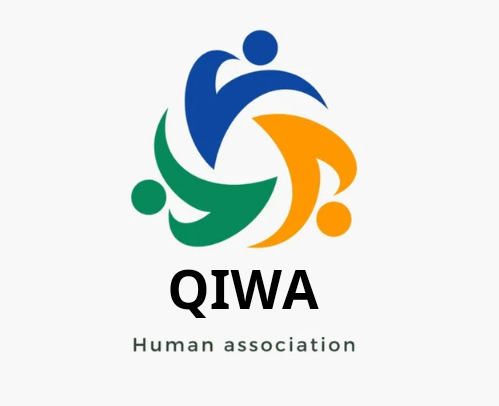
Mental Health Assessment For Youth
FollowOverview
-
Founded Date October 27, 2012
-
Sectors Medical
-
Posted Jobs 0
-
Viewed 32
-
Company size Leslie Solutions
Company Description
9 Things Your Parents Teach You About Mental Health Assessment For Children
Mental Health Assessment for Children: A Comprehensive Overview
Intro
Mental health is an important element of a kid’s general wellness. Early identification and intervention can substantially influence a child’s development and future prospects. Mental health assessments for children assist to determine, identify, and deal with psychological and psychological concerns. This post supplies a comprehensive overview of the procedures, tools, benefits, and often asked questions relating to mental health assessment for children.
Importance of Mental Health Assessment for Children
Mental health assessments play an important function in:
- Early Detection: Identifying concerns before they intensify can avoid long-lasting psychological and behavioral issues.
- Customized Interventions: Assessments help mental health experts style personalized treatment plans based upon each child’s requirements.
- Support System: Assessments provide insights for parents and educators, enabling them to much better support the kid at home and in school.
- Monitoring Progress: Regular assessments can help track a child’s development and the effectiveness of interventions.
Typical Mental Health Issues in Children
Various mental health conditions can affect children, consisting of:

- Anxiety Disorders: Generalized Anxiety Disorder, Separation Anxiety Disorder
- State of mind Disorders: Depression, Bipolar Disorder
- Attention-Deficit/Hyperactivity Disorder (ADHD)
- Autism Spectrum Disorder (ASD)
- Behavioral Disorders: Oppositional Defiant Disorder (ODD), Conduct Disorder
Steps in Mental Health Assessment
The assessment process usually includes several steps:
- Initial Consultation: Parents or guardians discuss their issues with a mental health expert.
- Clinical Interview: The kid undergoes a structured interview that explores their emotion, habits, and family background.
- Behavioral Observations: The clinician may observe the child in various settings, such as in the house or school.
- Standardized Tools: Various age-appropriate assessments are used to gather quantitative data. These may include:
- Questionnaires: For children and parents to submit.
- Score Scales: To assess particular habits or symptoms.
- Feedback Session: Results are gone over with the household, and suggestions are made based upon the findings.
Tools and Techniques for Assessment
There are several assessment tools offered for evaluating children’s mental health, consisting of:
| Tool Type | Function | Example Tools |
|---|---|---|
| Parent-Reported Questionnaires | To collect adult observations | Behavior Assessment System for Children (BASC-3), Child Behavior Checklist (CBCL) |
| Child Self-Report Questionnaires | To acquire the child’s viewpoint | Modified Children’s Anxiety and Depression Scale (RCADS), Mood and Feelings Questionnaire (MFQ) |
| Direct Observation | To comprehend real-time behavioral patterns | Achenbach System of Empirically Based Assessment (ASEBA) |
| Clinical Interviews | To acquire qualitative insights | Diagnostic Interview Schedule for Children (DISC) |
Benefits of Mental Health Assessment
- Comprehending the Child: Offers deep insights into a kid’s thoughts, feelings, and behaviors.
- Efficient Communication: Enhances interaction between parents, educators, and mental health professionals.
- Resource Allocation: Assists in recognizing proper resources and services tailored to the child’s special requirements.
- Minimizing Stigma: Normalizes looking for aid for mental health issues, motivating more households to pursue assessments and therapy.
Difficulties in Mental Health Assessment
While mental health assessments are invaluable, they are not without difficulties:
- Stigma: Many families may feel ashamed or ashamed to look for aid, fearing social judgment.
- Access to Services: Availability of qualified professionals can vary by area, making it difficult for some families to get assessments.
- Cost: Mental health services can be costly, and not all insurance coverage plans cover assessments sufficiently.
- Diagnosis Complexity: Children frequently display overlapping symptoms of various disorders, making accurate diagnosis challenging.
Frequently asked questions
1. At what age should a child undergo a mental health assessment?Children can be evaluated as early
as preschool age when indications of emotional distress or behavioral issues emerge. 2. The length of time does a mental health assessment normally take?Assessments can
range from a single session lasting 1-2 hours to ongoing assessments spread out across several weeks. 3. What should parents anticipate throughout a mental health assessment?Parents must anticipate interviews, questionnaires, and potentially observations in various settings. They will likewise be included in discussions about
their child’s habits and feelings. 4. Are mental health assessments confidential?Yes, mental health assessments are private. Nevertheless, there are exceptions mandated by law, such as disclosures around possible harm to
self or others. 5. What should I do if I think my kid
needs a mental health assessment?Reach out to a pediatrician or a certified mental health expert who specializes in kid psychology for recommendations and assistance on the assessment process. Mental health assessments are critical for identifying and attending to the psychological needs of children early in life. By understanding the significance of these assessments and the processes included, families can take informed steps towards guaranteeing their children’s
mental wellness. As mental health awareness continues to grow, it is necessary for parents, educators, and healthcare suppliers to actively take part in assessing and supporting children’s mental health needs.
